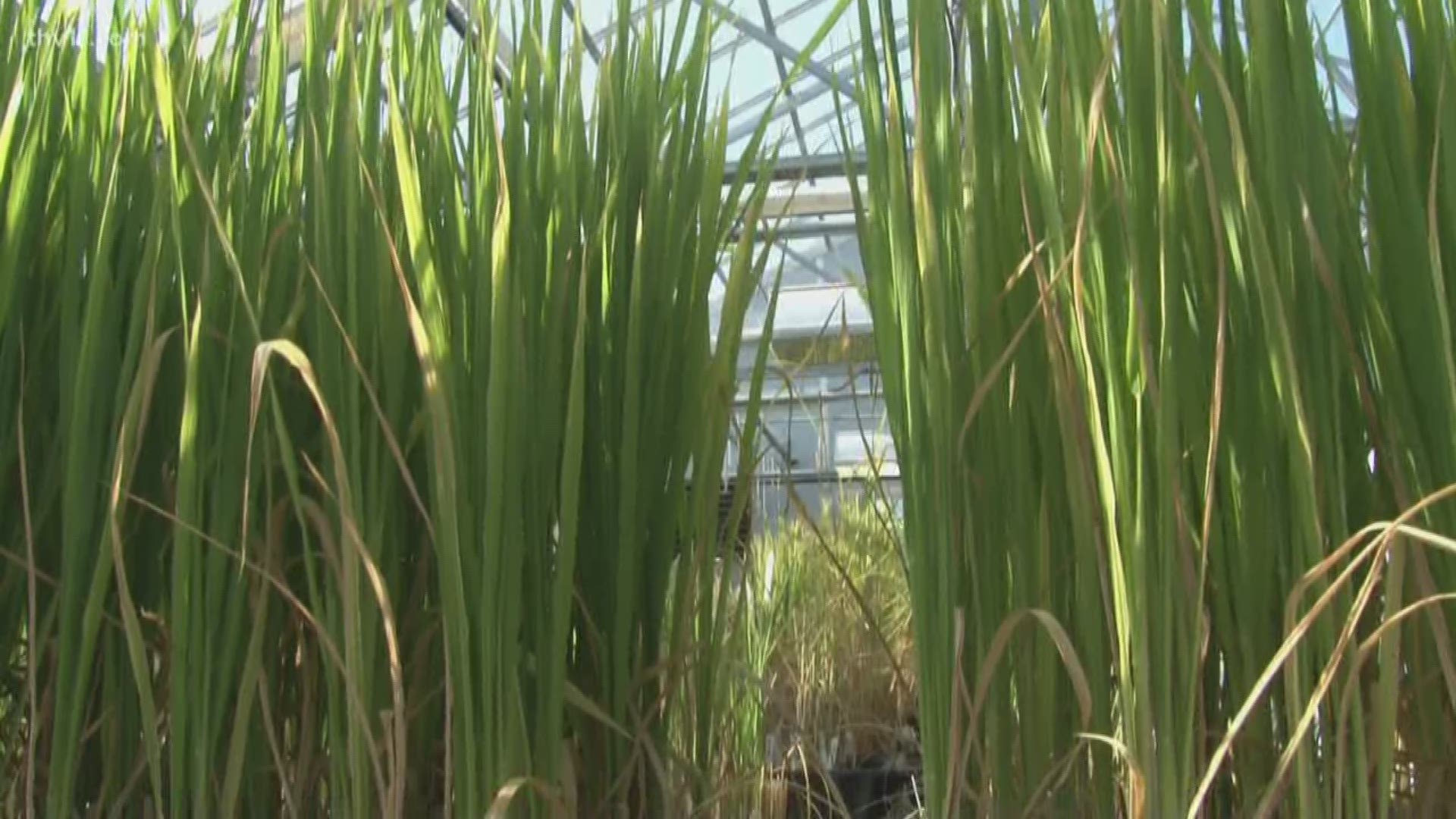STUTTGART, Ark. (KTHV) - Nearly half of the rice grown in America comes from Arkansas. And now local farmers have a new tool to get the most out of their crop. Its goal is to help them keep their cool when the summer temperature rises.
The University of Arkansas’s Division of Agriculture recently celebrated the grand opening of its newest greenhouse at its Rice Research and Extension Center. This one was designed to create a variety of rice that can better withstand warm nighttime temperatures.
“Temperatures that get into the upper 70s, even the lower 80s at night, can cause problems with rice,” Bob Scott, the center’s director, said. “They can reduce rice yields, and also when the rice is harvested and goes to the mill, it can cause chalkiness and other milling and rice quality issues.”
Farmers and researchers reached that conclusion during the summer of 2016, which was abnormally hot in Arkansas. The response from the state’s Rice Research and Promotion Board: donating nearly $1.9 million to build a specialized facility where UA scientists could solve that problem.
“We can control light, we can control humidity, and of course, temperature,” Scott said. “So this is very much a state-of-the-art greenhouse.”
The building is approximately 3,200 square feet and allows rice to grow year-round. The breeders who oversee the greenhouse will test different genes to see if they can make a variety of rice that grows better during warm nights. Though the ribbon-cutting ceremony was held last week, Scott said the greenhouse had been operational for a couple of months.
“It’s pretty impressive that, in less than two years, the facility is up and running, and we’re already starting to see some results,” he stated.
The building also includes a reverse-osmosis water filtration system, to make sure no outside particles contaminate the research, and two bedroom-sized growth chambers for scientific comparisons.
“These are computer operated,” Scott explained, “so you can set the conditions in growth chamber one, and then you can take the exact same plants and put them in our second growth chamber under more normal conditions, or lower nighttime temperatures.”
Arkansas rice farms face threats from products like “cauliflower rice,” and rice from foreign countries, including a recent indictment of two Chinese nationals accused of stealing proprietary information from researchers in Arkansas and Kansas.
“Rice is a commodity, and it faces a lot of competition,” Scott acknowledged while he said he hopes that hot nights can be removed from that list.
Scott said he hopes his team will develop a heat-tolerant variety of rice in as little as a couple years, but mentioned it might take them as many as seven years.
Scott added that this greenhouse is just the latest partnership between his center and the state’s rice farmers. They recently contributed to an upgrade of the center’s foundation seed building, where new seeds can be cleaned and packaged for delivery to Arkansas rice farms.
“And this is a new, state-of-the-art facility,” Scott said. “We had a few hiccups getting it up and running, as you can imagine with something this complicated, but we are 100 percent at capacity and running, now.”

